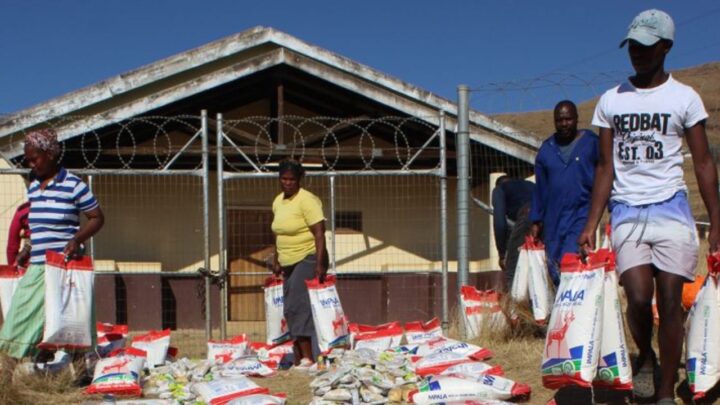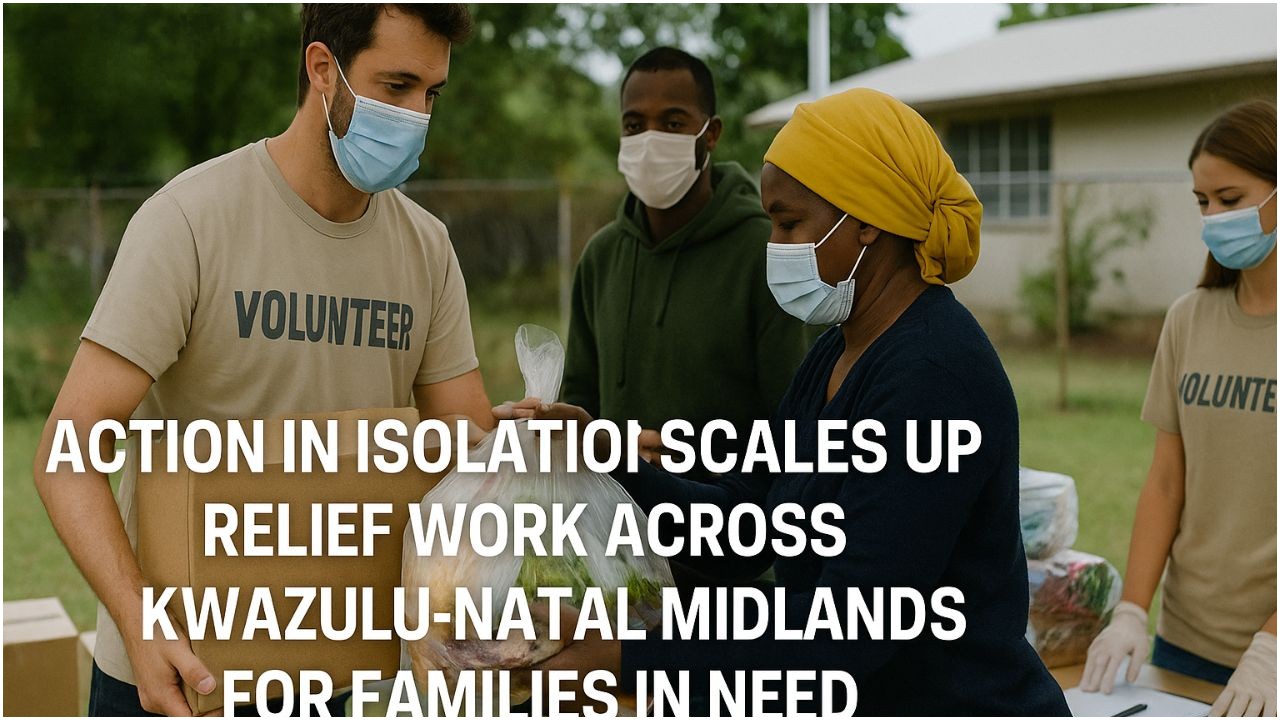KwaZulu-Natal Crisis – KwaZulu-Natal, South Africa – July 2025: As South Africa continues to grapple with the ongoing food security crisis, a glimmer of hope has emerged in the form of a powerful grassroots initiative. The humanitarian organization Action in Isolation has launched a dedicated Farmer Relief Kit Program aimed at supporting smallholder farmers affected by climate-related disasters, rising input costs, and declining yields across the KwaZulu-Natal region.
Background: The Mounting Food Security Crisis
KwaZulu-Natal, one of South Africa’s most fertile and agriculturally active provinces, has been hit hard over the past two years by a confluence of challenges. These include severe droughts, unexpected floods, pest infestations, and skyrocketing fertilizer prices due to global supply chain issues. For thousands of rural farmers who depend on their land for survival, these challenges have translated into significant crop losses and declining food production.
According to recent reports by the Department of Agriculture, over 60% of small-scale farmers in the province have reported at least one failed harvest since 2023. Food prices have surged by over 20% year-on-year, making basic staples such as maize, beans, and vegetables unaffordable for many households. This crisis has had a ripple effect on rural economies, exacerbating unemployment and deepening poverty.
Action in Isolation Steps In
Founded during the COVID-19 pandemic as a local mutual aid network, Action in Isolation has since grown into a recognized humanitarian organization known for its rapid response to community needs. In July 2025, the group announced the launch of its Farmer Relief Kits – a strategic intervention designed to provide immediate and sustainable assistance to struggling farmers in KwaZulu-Natal.
The Relief Kits are more than just a band-aid solution. Each kit includes:
- Drought-resistant seeds (maize, beans, spinach, and cabbage varieties)
- Organic fertilizer
- Basic irrigation tools
- Educational material on climate-resilient farming
- Personal protective gear and gloves
- Emergency food packs for families in crisis

KwaZulu‑Natal Crisis
The initiative targets more than 1,500 smallholder farmers across rural districts, with a focus on women-led households and historically disadvantaged communities.
A Holistic and Sustainable Approach
What sets Action in Isolation’s initiative apart is its commitment to long-term sustainability. In addition to the physical kits, the organization is partnering with local agricultural cooperatives and community elders to deliver training workshops on sustainable farming methods.
Workshops cover:
- Conservation agriculture techniques
- Composting and natural pest control
- Water-saving irrigation methods
- Financial literacy for farmers
- Seed saving and crop rotation strategies
These educational components empower farmers to make informed decisions about land use and crop planning, enabling them to better withstand future climate shocks.
Stories from the Field
For many farmers, the arrival of the Relief Kits marks a turning point. One such farmer is 48-year-old Nomusa Dlamini from the outskirts of Ulundi. After losing her entire maize crop to flooding earlier this year, she had nearly given up hope of replanting.
“I didn’t know where to turn. Everything was gone,” she said. “Then I got a call from Action in Isolation. They brought me seeds, fertilizer, and showed me new ways to plant. I’ve started again.”
Nomusa is one of hundreds now preparing for a second planting season, armed with knowledge and tools that could secure her family’s livelihood.
Similarly, Sibusiso Mhlongo, a young farmer from Eshowe, credits the workshops for giving him the confidence to shift toward climate-smart agriculture.

“They taught us how to plant with less water. Now I’m even helping my neighbors. We’re learning together,” he said.
Support from the Community and Beyond
The program has garnered strong support from local NGOs, agricultural unions, and even municipal leaders. Action in Isolation has also received funding support from international partners, including the Southern Africa Development Trust (SADT) and grassroots crowdfunding efforts from the South African diaspora.
Speaking at the program launch in Pietermaritzburg, founder and coordinator Thandeka Nene emphasized the importance of solidarity in times of crisis.
“When governments are slow to act, communities must rise. Our Farmer Relief Kits are proof that everyday people can come together to create real change,” she said.
Looking Ahead
The organization plans to expand the initiative beyond KwaZulu-Natal by early 2026, with pilot programs being explored in the Eastern Cape and Limpopo provinces. There are also plans to introduce a Mobile Agricultural Clinic, which would offer on-site soil testing, pest diagnosis, and one-on-one support for farmers.
As South Africa continues to confront the realities of climate change and economic inequality, initiatives like this serve as vital lifelines – not just for food security, but for community resilience and hope.
FAQs
Q1: What is the Farmer Relief Kit Program?
A: It’s a community-led initiative providing seeds, fertilizer, tools, and training to small-scale farmers affected by food insecurity in KwaZulu-Natal.
Q2: Who is eligible to receive a Relief Kit?
A: The program targets smallholder farmers, especially women-led households and those in historically disadvantaged communities.
Q3: Is the support one-time or ongoing?
A: While the kit is a one-time physical package, ongoing support is provided through workshops, training, and community partnerships.
Q4: How can people support or donate to the initiative?
A: Donations can be made via Action in Isolation’s official website or through their crowdfunding campaigns.
Q5: Are there plans to expand the program?
A: Yes, Action in Isolation aims to scale the program to other provinces by 2026 and launch additional services like a Mobile Agricultural Clinic.

